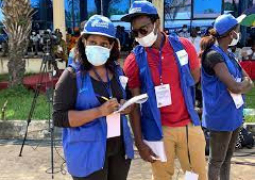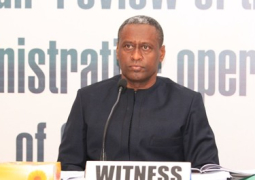
The young scholar, who is also a sustainable development champion promoting SDG goals 4, 11, and 13 for over 5 years, made the call on the occasion of International Literacy Day 2023, which is observed annually on 8th of September.
ML Sowe paid tribute to Dr. Lenrie Peters, Dr. Ralphina d’Almeida, Dr. Cherno Omar Barry, Prof. Pierre Gomez, teachers, scholars, writers, and all those who furthered the value of humanity through books and teaching.
The current literacy rate in The Gambia is 50.78%. The Gambia, according to UNESCO, has a literacy rate of 50.78%; the male literacy rate is 61.77%, while the female literacy rate is 41.58%, showing a big gap between the sexes.
Considering these statistics, he said The Gambia has a low literacy rate in comparison with other countries. “A point of concern is that the literacy rate has decreased in recent years. The Gambia Education Policy is aligned with Sustainable Development Goal 4, focusing on accessible, equitable, and inclusive quality education for all. The Constitution of The Gambia states that basic education is a right and should be free, compulsory and available to all.
However, he held that there is a huge gap in terms of advocacy, capacity building, and promoting relevant and quality education that matches modern learning needs. In a bid to justify his argument, he stated that COVID-19 was a perfect example and an indicator of how unprepared the country’s education sector had been in aligning the curricular with modern learning and teaching methods.
He added: “We have been doing very well in internal and external examinations, but there is every need to conduct a national teachers' competency test every 5 years and lay off teachers who are not fit enough to remain in the teaching system. Those who pass the test can be maintained with a salary increment, and those who fail the test can be compensated and work on improving themselves.
“Furthermore, we should develop a national reading framework to promote reading and effective learning in junior secondary schools. I say so because most Gambian students graduating from high school every year either have a reading problem or are not competent to enter the workforce effectively. Not just high school students but even some university graduates. The national reading framework should also promote and preserve our national languages as a way of promoting non-formal education.
“A rebrand is upon us, and it’s been a long time coming. Maybe it’s a new age or a new revolution, but I’ve been thinking about the Gambia developing a national reading framework in addition to our existing education policies. We have a national problem of readership in this country. There is every need to re-evaluate our education system every year and fix the broken lewds of literacy that must be addressed critically.”
"What do you think will become of Gambian students in 2030? Something that encompasses our national languages should be put into consideration. The reason why we could not overcome our national education crisis is not because there are not enough qualified teachers to teach in our schools—or there are not enough classrooms for teaching—but because it is the teaching methods, the rewards for teaching, and existing policies that must change.”
Mr Sowe concluded stating bluntly that one of the problems confronting The Gambia is “the gradual but steady literacy erosion” that can be noted from one region to another, adding that people are becoming rather too lazy to read or too busy to learn.
Read Other Articles In Headlines




